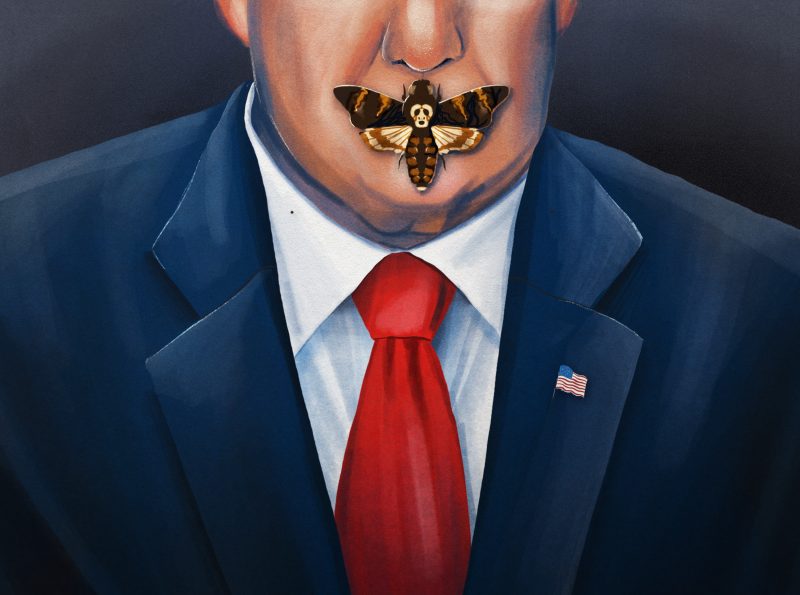In today’s fast-paced world where news cycles are constantly evolving, it is important to note the cultural references and influences that shape public discourse. Recently, an intriguing trend has emerged in political conversations where former President Donald Trump has made repeated mention of the fictional serial killer Hannibal Lecter. This peculiar association prompts a closer examination of the motivations behind Trump’s fascination with such a dark and menacing character.
One possible explanation for Trump’s affinity towards Hannibal Lecter is the manipulative nature that both figures possess. Hannibal Lecter, known for his cunning intelligence and ability to control those around him, could be seen as a mirror image of Trump’s own political tactics. Trump’s unorthodox approach to leadership and his tendency to dominate media attention draw parallels to Lecter’s psychological manipulation of those he encounters.
Furthermore, Trump’s repeated references to Hannibal Lecter may also serve as a strategic distraction. By invoking a universally recognized fictional villain, Trump redirects public focus away from more pressing political issues or personal controversies. This tactic of misdirection has been a hallmark of Trump’s communication style throughout his political career, using provocative statements and unpredictable behavior to shape the narrative around him.
Another perspective to consider is the role of celebrity culture in shaping Trump’s public persona. Both Trump and Hannibal Lecter have been portrayed in popular media as larger-than-life figures with an air of mystery and intrigue. By aligning himself with a character as infamous as Lecter, Trump may seek to cultivate an image of power and influence beyond the realm of traditional political discourse.
It is important to recognize that Trump’s fascination with Hannibal Lecter may also be driven by a desire for attention and shock value. As a seasoned entertainer and master of self-promotion, Trump understands the impact of making bold and unconventional statements that capture public interest. By associating himself with a figure as notorious as Hannibal Lecter, Trump solidifies his reputation as a provocative and enigmatic figure in the public eye.
In conclusion, the parallels between Donald Trump and Hannibal Lecter provide a fascinating insight into the complexities of political communication and media influence. Whether driven by a desire for control, a strategic diversion, or a quest for attention, Trump’s repeated references to the fictional serial killer reveal a deliberate and calculated approach to shaping his public image. As we continue to navigate the ever-changing landscape of politics and popular culture, it is essential to remain vigilant in analyzing the underlying motives behind such curious associations.
